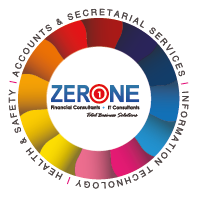Now if you like to read in detail about self-employed, read the details below.
Working for yourself (Self-Employed)
1. Overview
If you start working for yourself, you will be classed as a self-employed, even if you have not yet told HM Revenue and Customs (HMRC) but you are working for yourself. If this is the case, then you need to tell HM Revenue and Customs (HMRC) that you are working for yourself in service or trade of your skills and choice and follow the rules for self-employed tax and National Insurance. Self-Employed could be, a person selling balloons on the high street in front of a shop or on a mobile trolley to a person employing few hundred employees. It is your choice of carrying your business in simplest and traditional method.
2. Definition
Sole traders and partners (some cases a limited company with a single director acting as an employee, director, shareholder) are classed as self-employed by HM Revenue and Customs (HMRC). If you are providing someone services, selling goods through any medium (Stalls, Shops, Mobile trailers/shops, Open Markets, Websites, or any Agent or Intermediary). Either directly or indirectly (through your staff or contracted sub-contractors who are responsible to you for the work they do for your clients or customers, and you are responsible for paying them). You will be classed as self-employed working for yourself and responsible for paying your Income Tax, Class 2 National Insurance Contribution, and account for your Class 4 National Insurance Contribution as well as part of your tax bill.
If you are working as a self-employed you are responsible for all compliance work for your business, keep the records of all the incomes you may earn and expenses you may have to pay for your business. If you are working from home, you may be eligible to take a fair proportion of your home costs, involved to do your work. You are responsible for paying your Income Tax, Class 2 National Insurance Contribution, and account for your Class 4 National Insurance Contribution as well as part of your tax bill. You will be responsible for filing your tax returns, subject to quarterly or annually submission.
3. Possibilities of self-employed if you
- Are running your own business, and take responsibility for its success or failure
- Have one or more than one customers or clients at the same time
- Can decide what, how, where and when you want to do your work
- Can hire other people (worker, employee, contractors) for which you are responsible for paying according to national minimum rates or agreed prices with them
- Provide the equipment’s for you and your staff (worker, employee) to do your work; you can claim capital allowances against your income.
- Are responsible for finishing any unsatisfactory work in your own time
- Charge an agreed fixed price for your work
- Sell goods or services to make a profit (including through your websites or apps)
- ➢Many of these also apply if you own a limited company (by owing the shares of the company) and as the executive officer will be the director, but you will not be classed as self-employed by HM Revenue and Customs (HMRC). Instead of this, you will be both an owner and employee of your company.
4. Employed and Self-employed (together) if you are
You can be both employed (multiple employments) and self-employed and the director as well at the same time, e.g. if you work for an employer during the day and run your own business in the evenings. If you are in a situation of multiple sources of income, do not underestimate your tax and financial situation along with your possible tax bills and contact Zero One Consultants for the optimal tax efficient solution for yourself. You may like to speak to HM Revenue, and Customs (HMRC) directly or check their employment status indicator or as stated for a confidential consultation to Zero One Consultants.
5. VAT for Self Employed
You must Contact Us if you are with Zero One Consultants and if your business turnover is going over Certain Limits. Contact us if your business is growing day by day and you are not sure about how the VAT works and what are your responsibilities as a VAT registered person. If you have not appointed any professional advisor yet and your turn over is gone over Certain Limits, you may contact HM Revenue and Customs VAT department directly for further advice. We must advise contacting a professional advisor to avoid any potential penalties. You can register voluntarily if it suits your business, e.g. you sell to other VAT-registered businesses and want to reclaim the VAT on your purchases. Please read the VAT section of our website for further information or a free, confidential advice please book an appointment with us.
6. Register as Self Employed, Employer or Construction Industry Scheme Employer
If you are employing someone, it is your responsibility to issue your staff payslips, cut the right amount of Income Tax and National Insurance Contribution, contribute Employer National Insurance Contribution and deposit into HM Revenue and Customs (HMRC) accounts. You will be registered as a general employer if your trade is anything but construction industry. If you are in the construction industry, then you need to be registered as a Construction Industry Scheme (CIS) registered employer under Construction Industry Scheme (CIS). Being an employer is not simple especially if you are not sure about how to run your payroll services, join our payroll bureau at very competitive prices to avoid unnecessary penalties and for smooth payroll operation. Please read the PAYE section of our website for more information.
Self-Assessment Tax Accounting System
Once you register as Self Employed or for one of those incomes you have to declare on Self-Assessment tax returns, you will be subject to self-assessment. Self-Assessment is a system HM Revenue and Customs (HMRC) uses to collect Income Tax and National Insurance Contributions. On your application or official notice to HM Revenue and Customs (HMRC) working as self-employed, you will be issued a “Unique Taxpayer Reference (UTR)” number in the post. It may take up to 20 days to arrive at you.
For a taxpayer working under PAYE, system Tax is deducted automatically from Wages, Salaries and Pensions. People and businesses with other income and earnings over £100,000 must report it in a tax return.
Please check if you are in one of the below categories, then contact us as soon as possible
- ➢Company director
- ➢I'm getting income from land and property in the UK
- ➢I receive annual income from a trust or settlement
- ➢I'm getting taxable foreign income of £300 or more
- ➢My annual income will exceed £100,000
- ➢I've untaxed income which cannot be coded in PAYE
- ➢I have Capital Gains to pay
-
➢The below, Child Benefit statement applies to me
“I am due to pay High Income Child Benefit Charge as my income for Child Benefit purposes is over £50,000 and my partner or I get Child Benefit payments.”
Once determined you are subject to Self-Assessment tax system, and you will be filing along with all or as required from depending on your financial requirements
You need to Keep Records (e.g. bank statements or receipts and invoices), so you can fill in your tax return/s correctly. You should get help from HMRC or by an accountant to do your return for you. Zero One Consultants can help you to do your tax return/s; we do so online. We always say it is an important thing in your financial year so please do this with the help of a qualified accountant. An accountant is who holds the relevant qualifications and experience along with a professional indemnity insurance. If you do your tax return and realise that there is a mistake, please inform HM Revenue and Customs (HMRC) ASAP or speak to Zero One Consultants in your first availability.
HM Revenue and Customs (HMRC) will calculate What You Owe based on what you report. Zero One Consultants, if we are filing your tax return, we will be able to calculate your tax and National Insurance Contributions due before even submitting your tax return using their own © Kosar Simple Business Tax, or an equivalent approved software for making accounts and tax payable using accounts production software. By your experience, you know how much-estimated income you have earned in the current tax year. For the optimal tax payment plan with no interest charged contact Zero One Consultants soon after April 05 in the concerned tax year. If you are a heavy taxpayer, we will set up a budget payment plan in agreement with HM Revenue and Customs (HMRC), so you can pay your tax bill all over the year instead of paying in one go or bear the interest. Keep in mind if your tax bill goes beyond a certain tax limit (Varies time to time) you must pay half of your tax bill for next year as payment on the account. Pay your Self-Assessment bill by 31 January (or 30 December if you want HMRC to collect tax automatically from your wages or pension).

